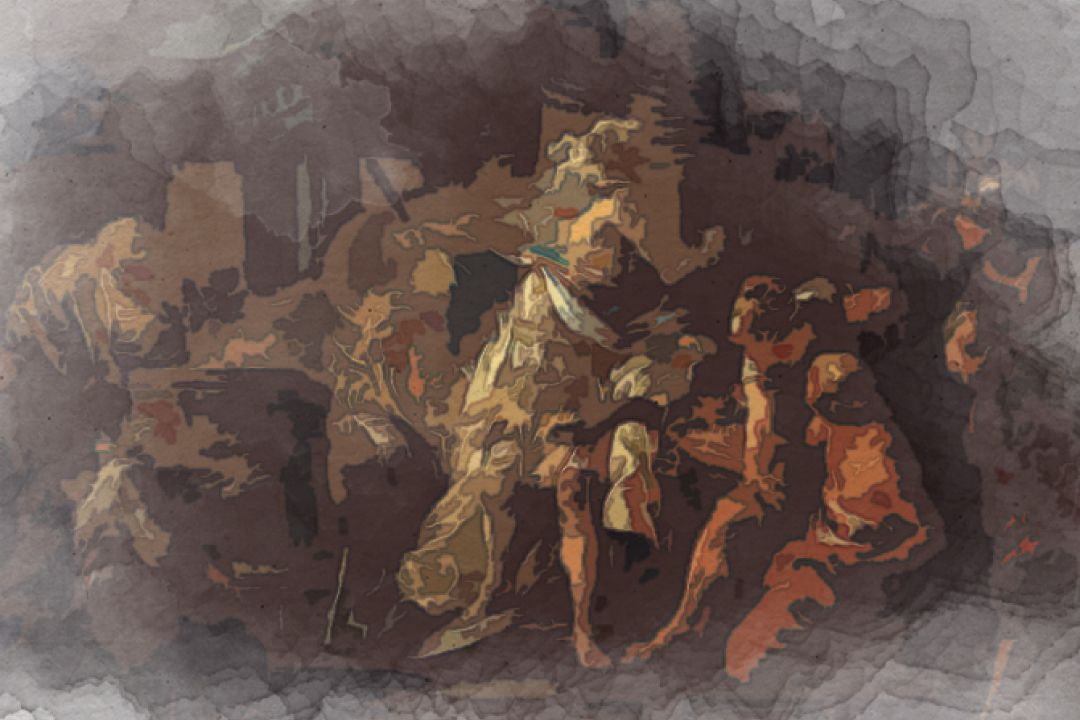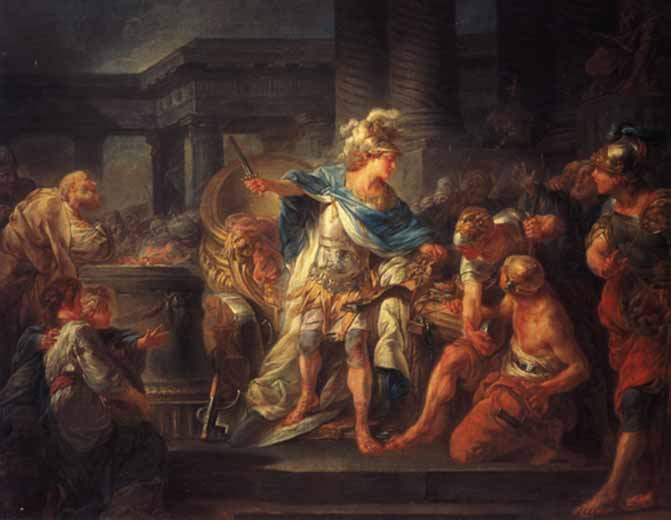Haves versus Have-nots

Alexander cuts the Gordian Knot by Jean-Simon Berthélemy (1743–1812)
In the recesses of the mind, a vivid image emerged—an untamed horse rising against the constraints of intricately woven knots. It embodied the essence of breaking free, a metaphorical release from the shackles that tethered both the tangible and the abstract. Like a spirited steed, the mind yearned for liberation from the complexities that sought to confine its potential.
As the memory of the horse gradually faded, the narrator sought refuge in the contemplations of Plato. The receding image prompted a contemplative question: Does forgetting signify a loss of knowledge, or is it a subtle dance with wisdom—an embodiment of Plato's theory that learning is, fundamentally, remembering?
In the quiet theatre of thought, a new tableau emerged—an iconic representation of Alexander the Great, his sword slashing through the renowned Gordian Knot. Jean-Simon Berthélemy's masterpiece seized the spotlight, capturing the audacious defiance of complexity. History, in turn, held onto this act, inviting subsequent generations to reimagine the narrative of heroes and the nature of their conquests.
Peace to the shacks! War on the palaces!
— Georg Büchner (1813-1837)
The resounding proclamation echoed through the corridors of contemplation, a rallying cry against oppressive forces. It harmonized with the spirit of Alexander, who dismantled the intricacies that hindered progress with a single, defiant stroke. The image of the horse, the teachings of Plato, and the triumphant strike of Alexander wove together into a grand tapestry of interconnected themes.
Show me a hero, and I will write you a tragedy.
— F. Scott Fitzgerald (1896-1940)
These poignant words lingered in the air, casting a shadow over the triumphant tableau. Heroes seemed to be fated to tragedy, their victories entwined with the inevitable threads of sorrow. Yet, in the unravelling of the Gordian Knot, a paradoxical hero emerged—one who stumbled into greatness, dreaming of the simplicity of an honest coward.
The real hero is always a hero by mistake; he dreams of being an honest coward like everybody else.
— Umberto Eco (1932-2016)
The short story unfolded as a composition of interconnected themes, a symphony of images and philosophies. It stood as a testament to the artistry of thought, a narrative transcending the boundaries of time and space. The rising horse, the fading memory, the slashing sword—each stroke of the literary brush added depth to the canvas. The reader was immersed in a tale that gracefully danced between the known and the unknown, a tapestry that spanned 1500 words of evocative storytelling.

The planksip Writers' Cooperative is proud to sponsor an exciting article rewriting competition where you can win over $750,000 in prize money.
Figures of Speech Collection Personified
Our editorial instructions for your contest submission are simple: incorporate the quotes and imagery from the above article into your submission.
What emerges is entirely up to you!
Winners receive $500 per winning entry multiplied by the article's featured quotes. Our largest prize is $8,000 for rewriting the following article;

At planksip, we believe in changing the way people engage; at least, that's the Idea (ἰδέα). By becoming a member of our thought-provoking community, you'll have the chance to win incredible prizes and access our extensive network of media outlets that will amplify your voice as a thought leader. Your membership truly matters!


